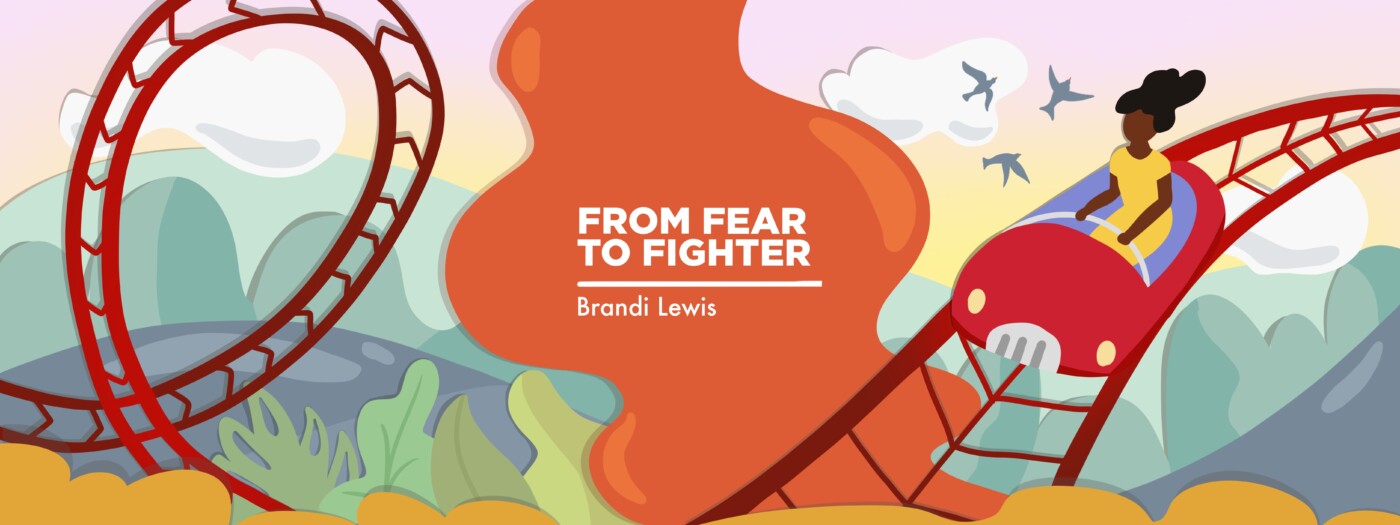The unique challenges faced by young adults with chronic illness
Grappling with stress, symptoms, and medical bills is hard in your teens and 20s

“What is it like to be diagnosed with life-threatening blood disorders as a young adult?”
When someone asks me this question, my body language answers as I sigh deeply, tense my shoulders, pop my fingers, and fidget anxiously. It’s a loaded question with many answers.
Being a young adult with a chronic illness, paroxysmal nocturnal hemoglobinuria (PNH), is stressful in particular ways. I’ve learned positive lessons about navigating life, but there are, of course, a plethora of problems I’m forced to face.
I wish I could show people a PowerPoint presentation full of bullet points as I describe the challenges of being young and sick. My peers and I have to balance health crises with our determination to live a full life.
Picture a seesaw. One side holds my family, career, love, relationships, and more. On the other side is my health, which involves weekly doctor visits, blood transfusions, medicine, insurance bills, surgeries, symptoms, resting, and paying attention to my body. If I put all my weight on one side, the other side goes flying out of control.
Over the past 15 years, I’ve spent a great deal of time in hospitals, where I’ve built relationships with doctors, learned the jargon related to my illnesses, and become aware of the seriousness of my conditions (I also have aplastic anemia). This time caused me to grow up faster than my peers. I felt like a 50-year-old in a 19-year-old’s body.
While everyone with chronic illnesses faces health battles, young adults experience unique challenges. I want to shed light on three issues I’ve faced.
Growing up early
I’m responsible for taking care of my health, monitoring my symptoms, and visiting my doctors, all of which became a priority for me when I was 19 and remain so at 34. These responsibilities forced the teenage me to grow up fast. As I was diagnosed at the beginning of my sophomore year of college, my demands changed from attending classes on time to making sure I was taking my medicine as directed.
At the time, I thought, “Let me give this attention now and it will go away.” I didn’t realize my diagnosis would continue to be significant for the rest of my life. As my health battle is a journey and not a sprint, I’ve grown to value relationships with hospital staff as well as patience, acceptance, and faith.
Connecting with others
At one time, I thought my only friends were patients and staff in hospitals. With my frequent doctor visits, I found it easy to build relationships with these people and parents, as I saw all of them weekly. Many patients, however, were older than me. Feeling like the only young patient battling this illness just made me lonely.
Still, speaking with other patients and caregivers about their journey helped me keep going. In fact, I found a special benefit in speaking with older patients: I was able to glimpse the future. I appreciated their perspective on having kids, getting married, explaining illnesses to a significant other, and navigating their career and health.
Insurance bills add stress
As a young adult, my goal after diagnosis was to graduate college. That dream had to go on hold for a little while, however. I wish there were an extra medal for graduating college while sick — it’s hard enough to do that, but even harder because balancing medical bills and the associated financial stress was one of my biggest hurdles.
I was forced into this world of understanding finances and navigating health insurance way earlier than my college peers. Every day I seemed to get another insurance bill in the mail. I learned how to talk to insurance companies, read medical bills, and understand deductibles and out-of-pocket maximums. These stressors affect all patients, but younger people like me are learning the basics of life at the same time.
I battled far more than my health at a young age, and I still play this game of balance every day. I’m more at ease now, but I needed time to get to this point — even as I’ve learned great but tough lessons along the way.
Are you young and battling an illness? If so, please share your experience or lessons in the comments below.
Note: PNH News is strictly a news and information website about the disease. It does not provide medical advice, diagnosis, or treatment. This content is not intended to be a substitute for professional medical advice, diagnosis, or treatment. Always seek the advice of your physician or other qualified health provider with any questions you may have regarding a medical condition. Never disregard professional medical advice or delay in seeking it because of something you have read on this website. The opinions expressed in this column are not those of PNH News or its parent company, Bionews, and are intended to spark discussion about issues pertaining to paroxysmal nocturnal hemoglobinuria.







